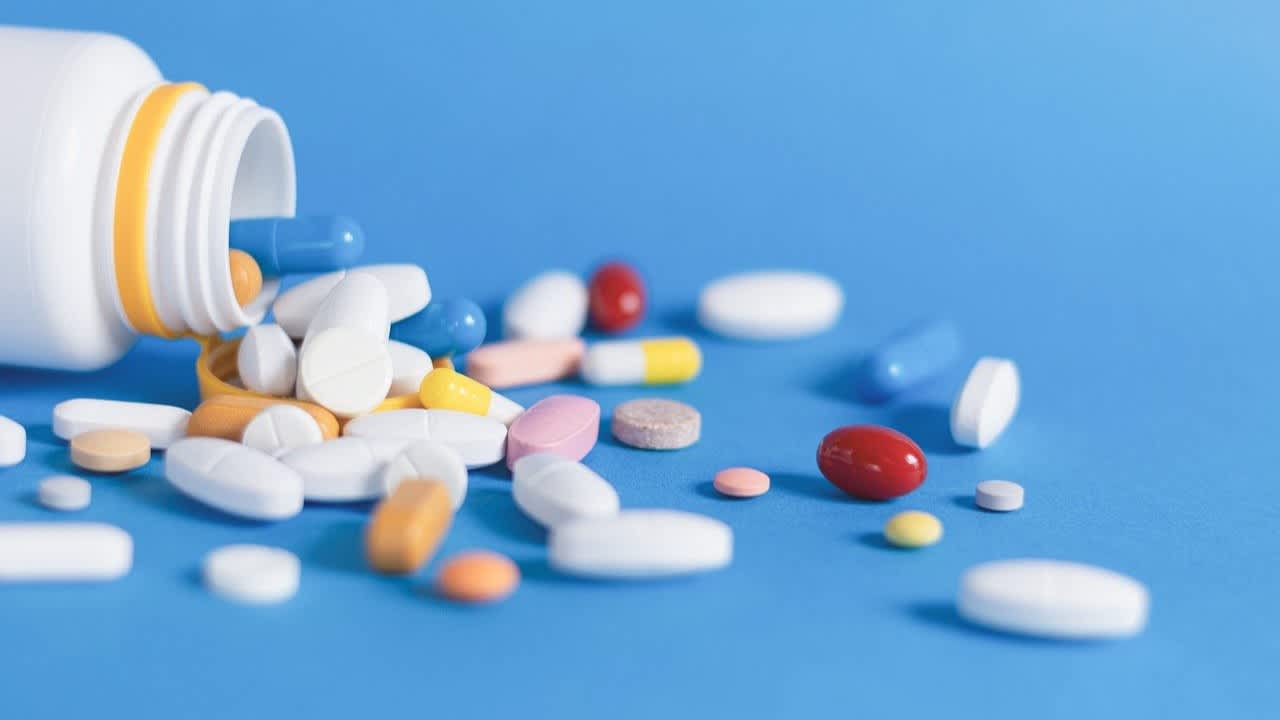By Alicia Curry, ITV News Multimedia Producer
ADHD patients are facing drug withdrawals, pill rationing and suicidal thoughts as medication shortages are forecasted to last into the new year.
Since September three different medicines have been affected to varying levels, which the Department for Health and Social Care (DHSC) claims is a result of an “increased global demand and manufacturing issues”.
Some supplies are not expected to be back to full stock until April 2024.
Rowan Golding, 31, who spent three weeks without his prescription in October, said he was forced to tell his employer about his condition after his performance was impacted.
“I started getting headaches and I felt very fatigued. I had to take time off work because it was so difficult to get up and do anything,” he said.
His workplace requested a sick note signed off by a doctor, which is where Mr Golding was told that his symptoms were indicative of a drug withdrawal.
Mr Golding said that beyond the physical toll the strain of not knowing when he will next receive his medication is just as much a mental battle.
“It’s incredibly stressful,” he added, “I’m only taking my medication on days where I know I need to focus at work just to make it last a little bit longer.”

Dr Ulrich Muller-Sedgwick, an ADHD expert and spokesperson for the Royal College of Psychiatrists, explained that those waiting for their prescriptions to become available are rationing their supplies.
“Some people have been taking their medication every other day, or just when they feel like they need it, but this isn’t a long-term fix,” he said.
“The most important thing patients can do is talk to their GP or psychiatrist to work through a safe solution to the problem.
“One patient I work with can only get a 40mg capsule when he should be on 50mg, in that case we have just had to lower his dosage. For those that can only access higher dosages, we could potentially open up the pills and remove some of the substance by hand.”
ADHD UK estimates – based on data from the Lancet and NICE – that 1.9 million adults live with the condition in the UK.
Medications help people with the condition manage symptoms, which can include difficulties with concentration, hyperactivity and impulsive behaviours.
“Taking away someone’s ADHD medication is pretty similar to taking away a wheelchair from a disabled person,” the charity’s CEO Henry Shelford told ITV News.
“If you take a wheelchair they won’t die but they can’t work in the same way, they can’t be with their friends and family in the same way. And that’s exactly the same as what people with ADHD are experiencing having had their medication ripped away from them.”
Mr Shelford added that the condition is difficult to live without medication, which he says is reflected in the suicide rates of those diagnosed with ADHD.
In an ADHD UK study of over 1,000 patients, 62% of respondents who take medication for their condition have had suicidal thoughts or an increase in suicidal thoughts since the start of the medication crisis.
“It’s a precarious position and we should be getting support to these people, but the government doesn’t have a system in place to allow this to happen,” Mr Shelford said of the findings.
The Association of Independent Multiple Pharmacies (AIMP), which represents around 4,000 pharmacies across the country, said pharmacists are facing growing anger from patients over the lack of access to medication.
Dr Leyla Hannbeck, AIMP’s Chief Executive, said the fallout can end up being misdirected towards frontline staff, as opposed to applying pressure on the government to rectify the issue.
“There’s something in how prepared the Department of Health manages situations like this. We’ve seen medication shortages happen before, earlier this year antibiotics were running out due to Strep A cases in children, so when they anticipate a rise in demand, particularly when there’s a boost in awareness through the media, there should be a process,” she said.
While acknowledging the influence of global markets, citing wars and access to raw ingredients as possible factors slowing down supply, Dr Hannbeck states it’s urgent the government has a mitigation plan for situations such as this.
She said: “It’s very easy for some of the government ministers to go in some specifically chosen pharmacy for a photo opportunity to make everything look great but the reality is this can’t keep happening.”
A DHSC spokesperson said the body “understands how frustrating and distressing medicine shortages can be,” adding that it “wants to assure patients that we are working intensively with suppliers to ensure that action is taken to improve the supply position.”
They claim some of the issues have now been resolved.
“We have issued communications to the NHS to advise healthcare professionals on management of patients whilst there continue to be disruptions to supplies.
“Patients are advised to speak to their clinician regarding any concerns they have and to discuss the suitability of treatment with alternative medicines,” they said.
Help and support is available now if you need it. Details of services available can be found at stv.tv/advice
The Samaritans can be contacted any time, from any phone, free on 116 123, email at jo@samaritans.org, or visit samaritans.org to find your nearest branch. Details of other services and more information can be found on the NHS website here.
Follow STV News on WhatsApp
Scan the QR code on your mobile device for all the latest news from around the country





























